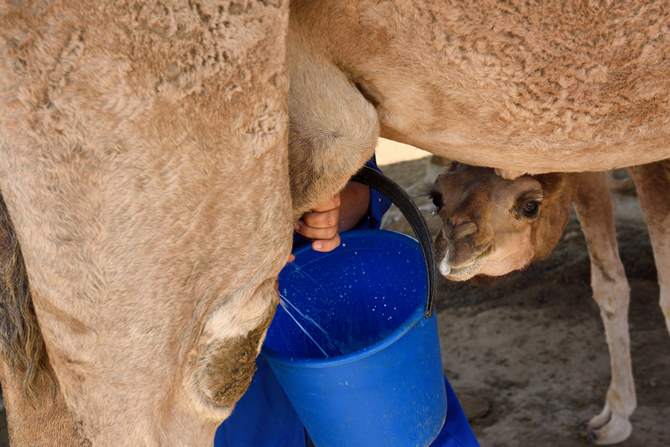 President Cyril Ramaphosa during a recent trip to Saudi Arabia. (Photo: Royal Court of Saudi Arabia)
President Cyril Ramaphosa during a recent trip to Saudi Arabia. (Photo: Royal Court of Saudi Arabia)Amidst the growing tension between the US and Saudi Arabia over the ongoing Ukraine-Russia war, the Gulf nation has conveyed its interest to join the BRICS Bloc. Last week, President Cyril Ramposa of South Africa during his visit to Riyadh announced that Crown Prince Mohammed bin Salman expressed the kingdom’s desire to join the BRICS. There are other countries like Turkey, Egypt among others who have expressed their interest to join the grouping, he told the media persons in that country.
The issue of expansion of the bloc of emerging economies will be on the agenda of the BRICS Summit scheduled to take place in South Africa under its presidency in 2023.
“The case of Saudi Arabia, however, is both curious and interesting. Saudi Arabia has traditionally been a close ally of the US in West Asia. But in the last few months, the relationship has undergone a roller-coaster ride. During his electoral campaign, President Biden projected Saudi Arabia as a pariah states due to Prince Salman’s alleged involvement in the murder of Jamal Khashoggi, a Washington Post journalist. After coming to power, however, he changed his course and visited Saudi Arabia. This visit was intended to ensure the low price of oil to punish Russia,” opines Prof Rajan Kumar, School of International Studies, JNU.
As reported earlier, South American nation Argentina’s President Alberto Fernandez had asked Chinese President Xi Jinping about joining the group. Iran too has sent in its request to join. Both countries have already applied for the membership of the bloc earlier this year in June. The other countries including Saudi Arabia, Turkey and Egypt are set to formally apply for the membership of BRICS.
BRICS represents more than 40 percent of the global population and nearly a quarter of the world’s GDP and if it is expanded it will help in bolstering the BRICS bloc’s global influence. At the BRICS summit this year, according to reports quoting Chinese Foreign Ministry spokesman Zhao Lijian, many countries have expressed their interest to join the bloc of emerging markets. And stated that China actively supports the member countries to start the expansion process for BRICS Plus Cooperation. At the 14th summit this year the members talked about the procedure and the standards for the expansion.
Talks between South Africa & Saudi Arabia
The talks between the two countries took place amid the row between Riyadh and Washington over OPEC’s decision to cut production quotas by 2 million barrels a day.
According to reports, while accusing the longtime ally of being close to Russia during the Ukraine crisis, the US President Joe Biden had threatened Saudi Arabia with unspecified “consequences”. The lawmakers of the US have called for halting arms sales and/or withdrawing military support to Saudi Arabia.
Saudis have refused to toe Washington’s line
According to Prof Rajan, “In a recent development, the OPEC-Plus, which includes Saudi Arabia and Russia as key players, has decided to cut down the production of oil in order to maintain a high price in the international market. Washington sees it as defiance, and a clear attempt to benefit Russia. This has irked Washington and President Biden warned Saudi Arabia of consequences. What would be the consequences, and whether the US has the capability to punish Saudi Arabia in today’s world remains to be seen. The weakness of the American strategic influence is yet again exposed.”
“Against this backdrop, Saudi Arabia’s interests in joining BRICS could be an attempt to diversify its foreign policy. It may well be a ploy to send a message to Washington that it has other options available if the push comes to shove,” he states.
BRICS Membership
But BRICS is yet to decide on expanding its membership. It does not have a clear policy on expansion. In the past, such attempts were rejected by some of the members. Russia and China would be keen to include Saudi Arabia in BRICS, but other members may not share the same enthusiasm.
According to Prof Rajan, “India has close ties with Saudi Arabia. However, it may not be open to the idea of expanding the bloc at this moment. India, Brazil and South Africa fear that such demands may come from other countries too. BRICS constitutes of states which are regional leaders and they are wary of rival states becoming members in the organisation.”
Sharing her views with Financial Express Online, Karin Costa Vazquez, Executive Director of the Center for African, Latin American and Caribbean Studies says: “Saudi Arabia, a traditional US ally, intention to join the BRICS signals to the West that the world is becoming more multipolar. This is particularly relevant after the US failed to dissuade its Middle Eastern allies from siding with other OPEC+ countries in cutting oil production and deprive Russia from its energy revenue. US geopolitically driven efforts to set a price cap on oil are perceived as a dangerous precedent for commodity markets and could further aggravate global economic anxiety.
“The expansion of the BRICS must be approved by consensus among the five original members. Saudi Arabia and India share political and economic interests, including on oil. It is easier for India to take a position on Saudi Arabia’s membership compared to Argentina, for example, that has weaker ties with New Delhi. Or other countries whose membership to the BRICS could be perceived as a threat to India’s influence and standing vis a vis China within the bloc” she opines.



